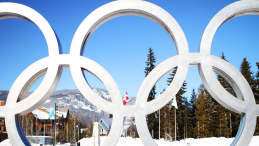Who: Dr. Andrea Ramírez, Associate Academic Officer
When: 15-22 April 2024
Where: Buenos Aires, Argentina
Why: for Transformative Urban Coalitions (TUC)
Dr. Andrea Ramírez conducts research for TUC, a project led by UNU-EHS that supports cities in finding joint solutions to become more green, inclusive and sustainable. Its five Urban Labs in Mexico, Brazil and Argentina bring together communities to address local needs and help shift cities towards zero carbon emissions by 2050. The Urban Lab in Buenos Aires focuses on an informal settlement called Barrio 20, which is currently undergoing a participatory re-urbanization process. The Urban Lab complements this ongoing process with new ideas, connecting decarbonization with efforts to tackle urban inequalities and advance climate justice.
What were the expectations and goals ahead of your mission?
Capacity development is a crucial aspect of TUC. For this mission, Buenos Aires was the scene of an in-person training on drone piloting for over 20 local participants led by Johnny Miller, a professional photographer from South Africa/USA. This training focused on developing competency and safety when flying a drone to visualize contrasts between low- and high-income urban areas like Barrio 20 for awareness-raising purposes. With TUC, it is important to provide people with the skills and tools to become aware of such contrasts and use the data as evidence when sharing their stories. As a second element of the mission, the project areas were filmed to reflect the concept of urban change in the TUC films. The mission, therefore, was a combined effort of facilitating capacity development through in-person trainings as well as making movies that support and facilitate knowledge exchange.
The drone images reflected the progress of both the re-urbanization process and the impacts of TUC and the Barrio 20 Urban Lab. It was gratifying to be in the field and meet participants of previous capacity-building trainings in person. For example, last year’s photography training aimed to capture personal perspectives of urban change; this year, we witnessed the transformation firsthand as a collective effort. It was moving to hear stories and meet inspiring individuals like Laura, a female leader in Barrio 20, or Noelia, who progressed from an amateur photographer to creating a photobook raising awareness about the community behind the urban transformation. Their leadership, capabilities, and efforts underline the female power of change, even amid urgent needs like securing food and income.
How does the drone training facilitate the work of the UL participants on the ground?
The idea of using drones for urban transformation is twofold: the images and videos of the aerial view provide opportunities for descriptive climate action through storytelling, while they also provide the possibility to very precisely monitor actions and progress on the ground. UL members have used nature-based solutions to incorporate the benefits of green spaces and shade. In addition, another UL initiative led by the local authorities and focusing on citizen science measures and compares factors like temperatures and humidity (indoors and outdoors), while facilitating access to this data for the community. The drone data adds on showing the area’s transformation and how the initiatives are interconnected for local climate action. In informal settlements like Barrio 20, such data is often not available, while it is very valuable information with regards to planning and decision-making. However, what really stood out was the realization of the community that the results of their efforts and progress were clearly visible in the aerial imagery. It helped to confirm peoples’ perspective of the great impact of these demonstration activities in the area.
How does the TUC approach differ from other work in the field?
The exploration of social accounts – such as concerns on the need for socially inclusive urban climate actions – through, for example, photography, drone imagery and films, as well as the facilitation of mindset shifts is TUC’s strongest suit. TUC supports community members in enhancing their skills and competencies so that the different UL participants realize they too can become urban leaders by developing their soft skills. The conversation on urban change cannot go forward without both creativity and technical knowledge. TUC’s success on the ground is due to its capacity to keep people meaningfully engaged with each other and their community. It maintains the momentum that is needed for realizing the transformation to socially just cities with zero-carbon emissions.




